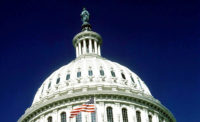 Medicare recipients currently receiving mental health outpatient services will be affected by the payroll tax legislation passed by Congress last week. As a result of the new law, which President Obama is expected to sign, payment for Medicare outpatient psychotherapy services will be cut by 5 percent beginning on March 1.
Medicare recipients currently receiving mental health outpatient services will be affected by the payroll tax legislation passed by Congress last week. As a result of the new law, which President Obama is expected to sign, payment for Medicare outpatient psychotherapy services will be cut by 5 percent beginning on March 1.
"Some of the most vulnerable in our country will be affected by this law," says Katherine C. Nordal, PhD, executive director for professional practice of the American Psychological Association Practice organization (APAPO). "These cuts will impact funding not only for psychotherapy outpatient services, but to community behavioral health centers, state hospitals and private hospitals with mental and behavioral health units."
Medicare Part B covers outpatient services for mental health diagnosis and treatment as well as therapy services for in-patients at state and private hospitals. Medicare covers services provided by psychologists and other Medicare approved providers.
In a 2008 survey by the American Psychological Association, 11 percent of psychologists reported that they dropped out of Medicare participation, citing low reimbursement rates as a primary reason. APA estimates that 3,080 psychologists who once participated in Medicare have left the program.
The Centers for Medicare and Medicaid Services (CMS) slashed Medicare psychotherapy payment rates as part of its Five-Year Review in 2006. Since that time, four laws restoring 5 percent of the payment for psychotherapy services have been passed. At the end of 2011, Congress extended the payroll tax cut for two months through February 2012 and included payment for psychotherapy services.
"We have an enormous Medicare population in this country," says Nordal. "We cannot afford to lose qualified, licensed mental and behavioral health Medicare providers. A loss of providers will negatively impact patient care and recovery.”
The American Psychological Association Practice Organization is a companion organization of the American Psychological Association, the largest scientific and professional organization representing psychology in the United States. APA's membership includes more than 150,000 researchers, educators, clinicians, consultants and students.


